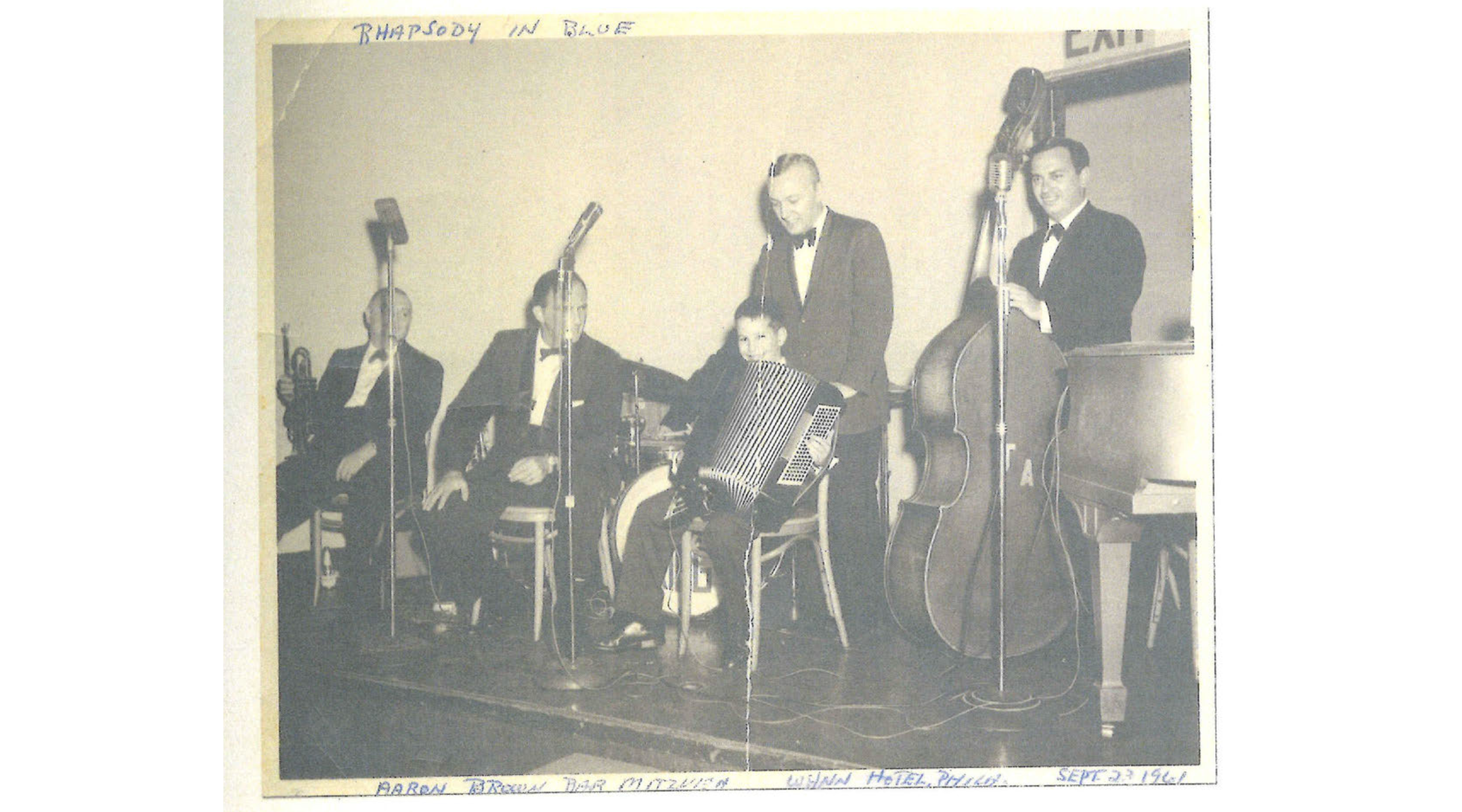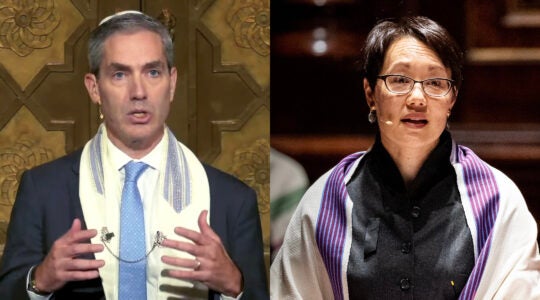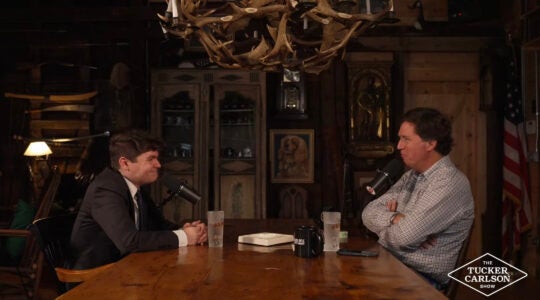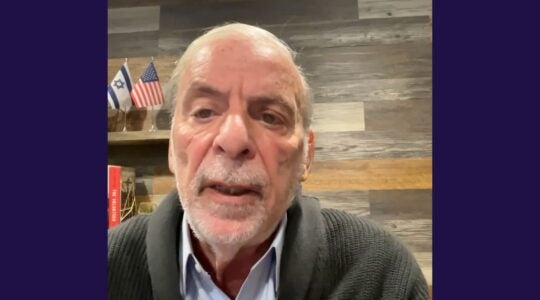When Jeffrey Epstein turned 50 in 2003, his then-girlfriend Ghislaine Maxwell assembled a 238-page tribute album to mark the occasion. The so-called birthday book, handed over by Epstein’s estate to the House Oversight Committee and made public this week, is lurid and unsettling: filled with crude drawings of women’s bodies, tales of sexual conquest, and notes from powerful friends who seemed to celebrate rather than recoil at his predation.
Amid the misogyny, however, runs another, less examined thread: traces of Epstein’s Jewish identity. The book reveals his Jewish name, Yudel; shows him squeezing an accordion at a bar mitzvah; records a family trip to Israel in 1985; and contains affectionate notes from childhood friends who grew up with him in the Jewish enclave of Sea Gate, Brooklyn.
It is a portrait of a man whose Jewishness, while never central to his public persona, was interwoven with his life story and social circles, which in later life included close ties with prominent Jewish figures like Leslie Wexner and Alan M. Dershowitz, both of whom contributed letters to the birthday book.
A letter signed “Leslie” features a drawing of a set of breasts below the words, “I wanted to get you what you want.”
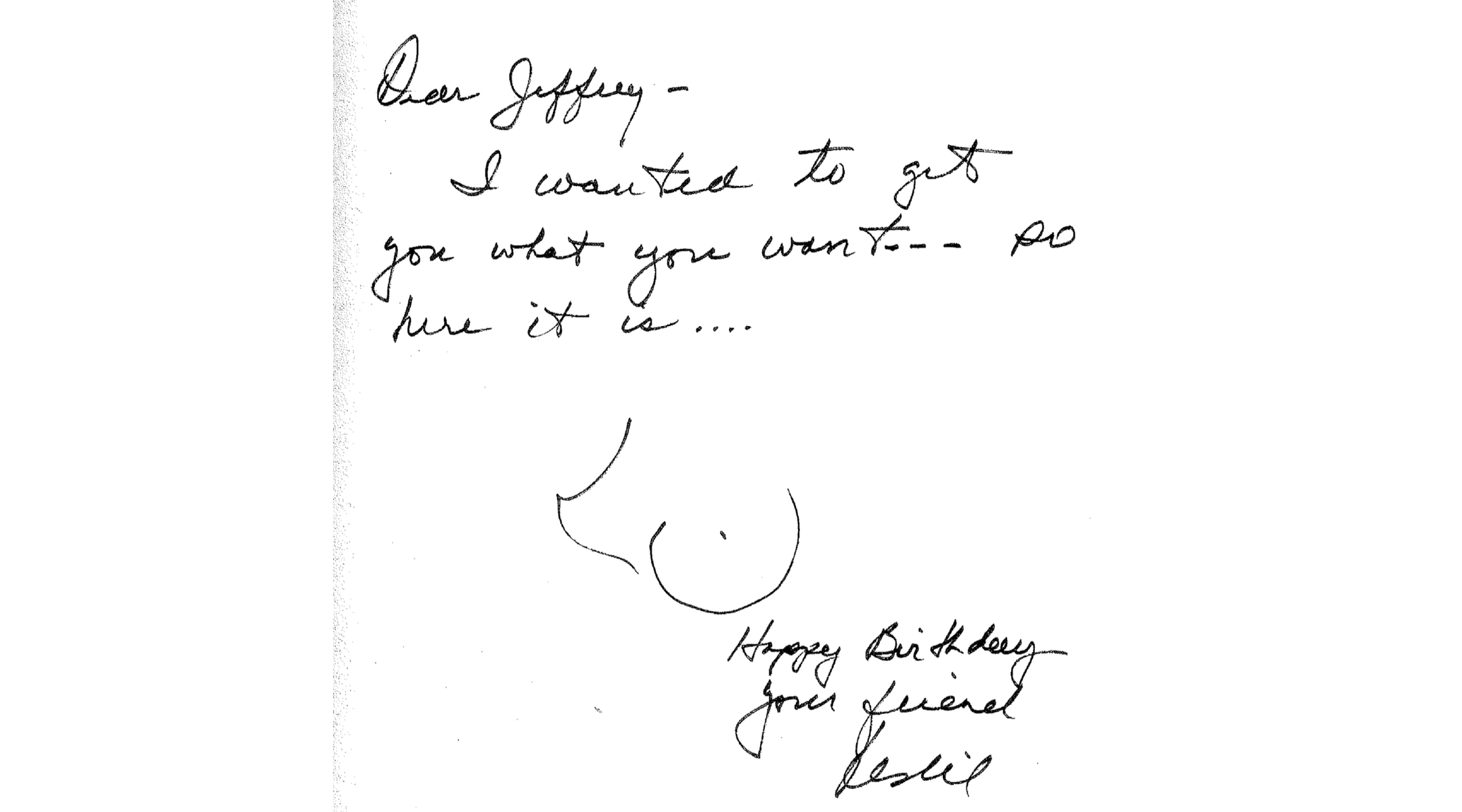
A birthday greeting to Epstein from Leslie Wexner, featuring hand-drawn breasts and the message, ‘Dear Jeffrey — I wanted to get you what you want — so here it is … Happy Birthday, your friend Leslie.’”
The book also features the now well publicized poem attributed to Donald Trump, framed by the silhouette of a nude woman and with what appears to be Trump’s signature. The poem praises Epstein’s pursuit of women, echoing the crude bravado of other contributions. Trump’s representatives have denied his authorship.
Born in 1953 to Seymour and Paula Epstein, the children of Jewish immigrants, he grew up in Sea Gate, a gated community at the tip of Coney Island. In the 1950s and ’60s, Sea Gate was a predominantly Jewish, middle-class enclave, and the Epstein family lived across the street from the Kneses Israel synagogue, today affiliated with the Chabad-Lubavitch movement.
According to the 2017 investigative biography “Filthy Rich,” he was known to friends as “Eppy” and remembered as sweet and generous. He showed talent in math and the piano. Much of his extended family had perished in the Holocaust.
The birthday book adds new texture. A biographical note beneath his birth certificate appears to record his “Jewish name” as Yudel, a Yiddish form of the Hebrew name Judah. Before he took up the piano, Epstein played the accordion. A letter from his mother recalls him performing on the instrument at both his own bar mitzvah and that of his “uncle Lenny.” Another page features a photograph of Epstein playing the accordion, captioned “Aaron Brown bar mitzvah.”
A brief recollection by Epstein’s father notes that the family traveled to Israel in 1985 to visit relatives. The trip reflects a typical American Jewish connection to Israel, though with luxuries rare for the time, when Israel was far less developed than it is today. The account mentions stays at the Plaza Hotel in Tel Aviv and the King David Hotel in Jerusalem, “where my son Jeff hired a limo to take us around.”
This period in Epstein’s life coincided with his foray into international intrigue. In 1981, he founded Intercontinental Assets Group, a consulting firm he described as a high-level bounty-hunting operation, working at times for governments or billionaires and at other times for embezzlers themselves.
By the mid-1980s, he was traveling frequently across the United States, Europe, and the Middle East, and reportedly telling some people he worked in intelligence. He forged ties with defense contractors, financiers, and media baron Robert Maxwell, the father of his future girlfriend. One of his clients was Saudi arms dealer Adnan Khashoggi, who played a central role in the Iran-Contra affair by acting as an intermediary in the covert transfer of American weapons routed through Israel to Iran.
Several letters come from Jewish childhood friends, capturing the camaraderie of boys who came of age together in Sea Gate. These reminiscences are presented as tender and humorous, but they also hint at patterns that would later curdle.
One letter recalls Epstein’s antics at a Jewish singles weekend at the Concord Hotel, a Catskills resort that epitomized mid-century Jewish leisure. Epstein and his friends, the note says, were kicked out of the resort after setting a room on fire and throwing food. The letter also appears to recount a prank in which Epstein impersonated a rabbi to lure his daughter close, the payoff described as a chance to “touch her boobs.”
Alongside these youthful stories appear tributes from some of the most powerful Jewish figures in Epstein’s orbit as an adult.
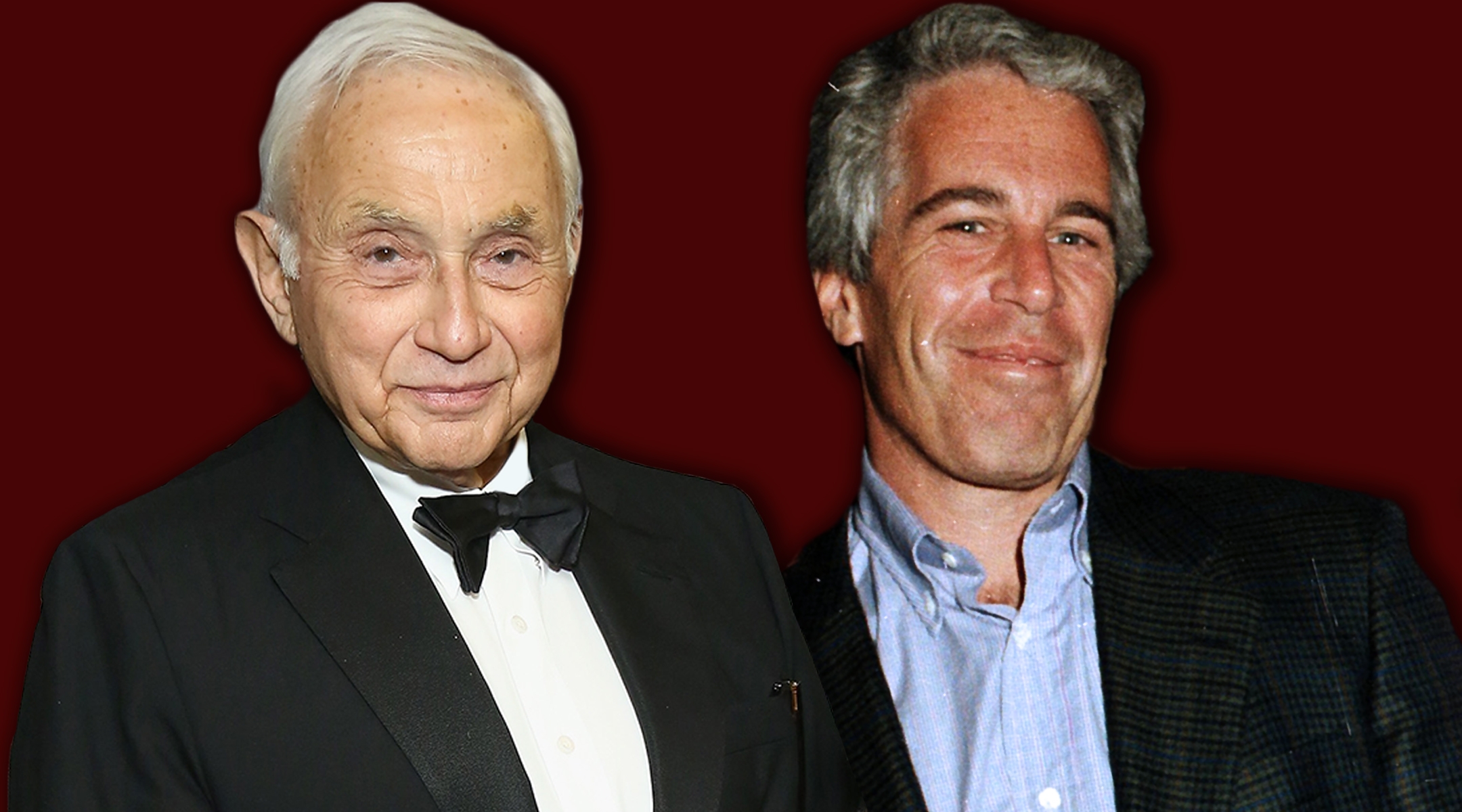
Leslie Wexner, left, and Jeffrey Epstein were close for years. Epstein’s scandal has dogged the billionaire Jewish philanthropist. (Laura E. Adkins/Getty Images)
The presence of Wexner — a major donor to Jewish causes and the billionaire founder of L Brands, the company behind Victoria’s Secret and other retail chains — reflects his well documented and longstanding ties to Epstein, which have caused angst among the many Jewish professionals who have received prestigious fellowships that still bear his name.
A letter from Alan Dershowitz, the famed Harvard law professor, jokingly boasts that, as a birthday gift, he persuaded Vanity Fair to shift the focus of an article away from Epstein and onto former president Bill Clinton. The private equity titan Leon Black, a benefactor of the Jewish Museum and other Jewish institutions, signed off “Love and Kisses” after likening Epstein to Ernest Hemingway’s fisherman in “The Old Man and the Sea.”
Another letter comes from the real estate and media magnate Mort Zuckerman, a past president of the Conference of Presidents of Major American Jewish Organizations. Peter Mandelson, the British diplomat of Jewish heritage, and the late Nobel prize laureates Murray Gell-Mann and Gerald Edelman, the mathematician and biologist Martin Nowak, and the influential Harvard administrator Henry Rosovsky round out the group.
Many of the men who once praised Epstein have since sought to explain or distance themselves from the relationship. Wexner has said he was “deceived” by Epstein, who misappropriated vast sums of his fortune, while Dershowitz has downplayed the entry and denied any wrongdoing.
Black called the association a “terrible mistake.” Mandelson said he deeply regrets the relationship. Others, including Nobel laureates and prominent scientists, acknowledged Epstein primarily as a patron of research but later condemned his conduct.
Rosovsky, a refugee from the Nazis who shaped Harvard for decades including by nurturing Jewish life on campus, died in 2022 at age 95 without commenting publicly about the allegations against Epstein. Decades earlier, Epstein and Wexner had underwritten Rosovsky Hall, the home of Harvard Hillel, in his honor; the building had a plaque naming Epstein that was removed as he became associated with scandal.
Last month, Rosovsky was implicated in Epstein’s exploits for the first time, when a court transcript was released showing that Ghislaine Maxwell testified that he had received a “massage” — a euphemism for a sexual encounter — at Epstein’s townhouse.
The entry in the birthday book attributed to Rosovsky is in keeping with the dominant theme. “For the man who has almost everything — but never enough of these!” it says in handwritten cursive, alongside two color images labeled “tit print.”
With the birthday book now in the congressional record, its contents are poised to ripple through partisan battles in Washington, as lawmakers debate what, if anything, should come next in reckoning with Epstein’s web of connections.
JTA has documented Jewish history in real-time for over a century. Keep our journalism strong by joining us in supporting independent, award-winning reporting.
